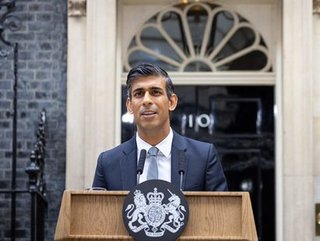Shell & Boots Execs Slate Sunak’s UK Climate Efforts

The UK has been known for climate leadership since the 1980s and was the first major economy to halve emissions and implement net zero strategy.
However, the leaders in charge of holding the UK Government accountable for environmental work say that Prime Minister Rishi Sunak has “set us back” on climate change – and many corporate leaders agree.
“The UK has done a lot to reduce greenhouse gas emissions but in our view that is in the past – we are looking to the future to the things that need to be done if we want to get to net zero,” says Chris Stark, CEO of the Climate Change Committee (CCC).
“Concerning to hear Chris Stark reflect that the ‘rhetoric’ on net zero has changed for the worse in the UK,” comments Joe Franses, VP of Sustainability at Coca-Cola Europacific Partners.
“He refers to the ‘collective fear’ of talking about net zero in UK politics and the damage done by a slowing of ambition to the UK’s international climate leadership. And that’s despite the significant progress in reducing UK emissions over the last decade, the embedding of net zero and carbon budgets into UK legislation etc.
“It is an urgent reminder to those working to drive a long term transition to net zero – in business or government - that we have to shift the dialogue to focus on the benefits and opportunities from green investment, innovation and technologies.”
Chris called out a lack of leadership in areas including:
- Heating homes
- Industrial emissions
- Farming
- Transport
“We need to see stronger policies in these areas. The risk for the UK is that we are going to lose the climate race, right when we should be at the forefront,” he says.
John MacArthur, Senior Advisor to The World Business Council for Sustainable Development, previously Group Climate Change Officer at ADNOC and VP Group Carbon at Shell, supports the criticism.
He said: “Kudos to Chris Stark - outgoing CEO of the Climate Change Committee. In his BBC interview this weekend, Chris was insightful, balanced, non-partisan and constructively critical of all parties' political short-termism and even the negative impact of some climate campaigners. Chris: ‘The most successful transition is the fastest transition that everyone supports’. Wise words.”
This interview follows Rishi Sunak’s failure to appoint a new CEO of the CCC in time for Chris’ departure at the end of April 2024, having previously pushed back the deadline for selling new petrol and diesel cars in Autumn 2023 in what he referred to as a “more pragmatic, proportionate and realistic approach” to reaching net zero emissions.
A government spokesperson said: "We are the first major economy to halve greenhouse gas emissions since 1990 and have set into law one of the most ambitious 2035 climate change targets of any major economy," referring to the target to cut emissions from manufacturing by about two-thirds by 2035.
"But we need to reach our net zero goals in a sustainable way, so we have taken action to protect our energy security, ease the burdens on hard-working people and provide transparency about the choices involved so that we bring people with us in meeting our climate targets."
Richard Baker, a former chair of Whitbread and CEO of Boots disagrees: “It’s bad news, not only because the UK had been world leading on net zero, but because of the uncertainty it creates around investment decisions for business.”
The Climate Change Committee
Chris Stark, CEO of the Climate Change Committee (CCC), took the position in 2018 and has been the chief climate adviser to Government and Parliament over a period during which the UK has substantially extended its climate ambitions, in response to the Committee’s advice.

Chris worked closely with Theresa May’s Government to put the UK’s Net Zero by 2050 target into law, making the UK the first major economy in the world to do so. His work on the UK’s Carbon Budget and Climate Change Risk Assessments has defined the way that the UK has approached climate change.
Previously Chris was the Director of Energy and Climate Change for the Scottish Government and has held a variety of roles in Government in HM Treasury and the (then) Department for Business, Innovation and Skills.
“Rishi Sunak has talked a lot about the need to reappraise lots of the steps that take us to net zero – I think it set us back,” Chris says.
“I think we have moved from a position where we were really at the forefront, pushing ahead as quickly as we could on something that I believe to be fundamental to the UK economy, fundamentally beneficial to the people living in this country, whether you care about the climate or not.
“We are now in a position where we’re actually trying to recover ground.
“The diplomatic impact of that has been immense. Other parts of the world are inferring that the UK is less ambitious on climate than it once was and that is extremely hard to recover.”
******
Make sure you check out the latest edition of Sustainability Magazine and also sign up to our global conference series - Sustainability LIVE 2024
******
Sustainability Magazine is a BizClik brand
******






